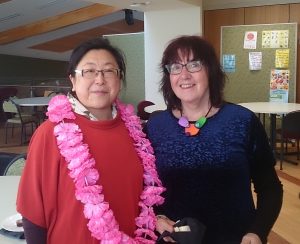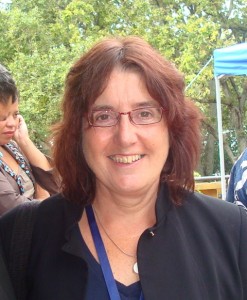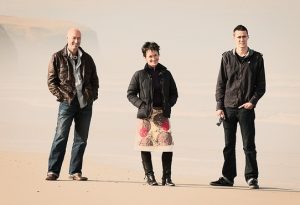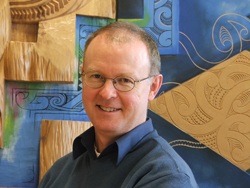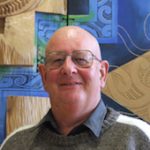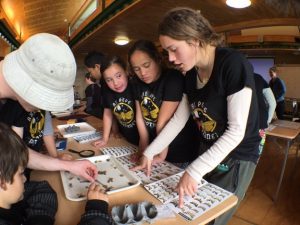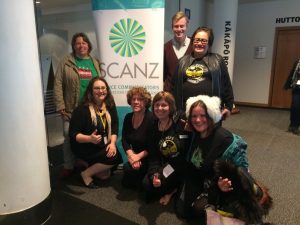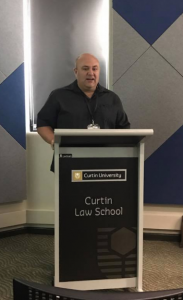He Kōrero Manu: Manu Narratives
This is perhaps the first time Te Tumu has featured in Spinoff, New Zealand’s pre-eminent online news service! Raphael Richter-Gravier recently completed a PhD thesis on bird narratives from Polynesia, that features in the article. Raphael was supervised by Professor Michael Reilly and Dr Michelle Schaaf from Te Tumu, and also by Professor Bruno Saura from the University of French Polynesia. Click here to access the Spinoff article on Raphael’s thesis. If you want to read the thesis, click here.
Manu narratives of Polynesia
Te Tumu would like to congratulate Raphael Richter-Gravier, one of our stellar postgraduate students, for having completed all the post-examination formalities for his PhD on “Manu narratives of Polynesia: a comparative study of birds in 300 traditional Polynesian stories“.
Raphael was supervised by Professor Michael Reilly and Dr Michelle Schaaf from Te Tumu, and through a co-tutelle arrangement, also by Professor Bruno Saura from the University of French Polynesia. Raphael’s research is comprehensive and in-depth, looking at a wide range of bird stories on a number of themes from all around Polynesia, including Aotearoa.
If you are interested in delving into some of the stories, or reading Raphael’s thesis in its entirity, it is now available online on the university’s OUR Archive. Click here to access it.
Raphael will be graduating in December, and is planning to publish from his research.
More graduation success for Te Tumu
Being able to highlight student success always brings great pleasure to Te Tumu. This May we have ten students completing their degrees in May. Thomas Aerepo-Morgan (Ngāi Tahu, Waikato, Ngāti Whakaue, Kuki Airani), Maramena Tuna (Tūhoe) and Kaahu White (Ngāi Tahu, Te Rarawa) graduate with a BA in Māori Studies. Thomas is currently pursuing a Master of Indigenous Studies degree, and Maramena is teaching our MAOR108 (Waiata) paper. Liam Gillan-Taylor (Pākehā), Brogan Handcock (Ngāti Tūwharetoa, Ngāti Kahungunu, Pākehā), Jade McCaughan (Pākehā), Tiana Matthews (Ngāti Kahungunu, Ngāti Tūwharetoa, Ngāti Porou, Pākehā) and Isabel Moore (Ngāti Porou, Pākehā) all graduate with a BA in Indigneous Development/He Kura Matanui. Two students (below) are graduating with PhDs. We wish all our graduates future success wherever their skills and knowledge take them.
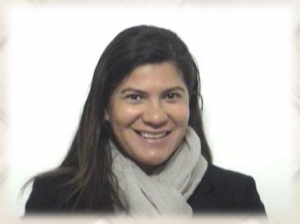 Emma Dunlop-Bennett (Ngāti Maniapoto, Samoan, Pākehā) undertook her doctorate, “Through their eyes: a Samoan perspective on child wellbeing”, while based principally in Wellington. Emma’s supervisors have included Assoc Professor Jenny Bryant-Tokalau, Dr Michelle Schaaf, Assoc Professor Bev Lawton and Professor Tony Dowell.
Emma Dunlop-Bennett (Ngāti Maniapoto, Samoan, Pākehā) undertook her doctorate, “Through their eyes: a Samoan perspective on child wellbeing”, while based principally in Wellington. Emma’s supervisors have included Assoc Professor Jenny Bryant-Tokalau, Dr Michelle Schaaf, Assoc Professor Bev Lawton and Professor Tony Dowell.
Her abstract reads: Child wellbeing is the subject of a considerable body of research and policy making globally, and in New Zealand today. Despite its extensive use, the concept of child wellbeing is used differently across disciplines and across diverse social and cultural contexts. Little of the extant literature recognises the influence of ‘other’ worldviews, cultural beliefs, values, and ways of knowing. Further, the voices of children are largely missing in the child wellbeing debates, despite the fact that children are able to offer authoritative knowledge of their world and of their experiences. A review of the literature on Pasifika, children and childhoods, and wellbeing, highlights that there is currently no literature in New Zealand that connects these three areas together. This is the gap where this research contributes new knowledge to understanding – from the standpoint of Samoan children and their parents living in Wellington – how they conceptualise child wellbeing. The Samoan diaspora is the focus of this research given the diversity that exists within Pasifika.
Guided by the Talanoa ile i’a (Faleolo, 2009), this exploratory research positions children as ‘experts’ on their wellbeing and creates the space for them to share their knowledge. The Samoan children do so through combining Samoan (talanoaga) and Western (photovoice) research methods. The Samoan children took 10 photos of what made them feel ‘happy, safe, and loved’, which they used to guide their talanoa. The views of their parents were elicited through talanoaga.
From the talanoaga, the Samoan children defined their wellbeing as “a bunch of stuff that has good bits and bad bits”. This definition picks up the relational aspect of wellbeing as well as resilience. Four factors are important to their wellbeing, which are: social connections, not having to worry, feeling valued and included, and being a good person. Connecting with people, particularly their family, stands out as being of overwhelming importance to their wellbeing. The Samoan children bring these ideas together conceptually as a seesaw in a playground. Parents conceptualise the wellbeing of their children as ola manaia or the beautiful life. They see their main role as laying the foundations on which their children could have a beautiful life. For many parents, they are drawing on the fa’asamoa and the way in which they have been raised, but ‘tweaking’ this to account for shifts in the broader context. Of note, parents view wellbeing in terms of their children being happy and emotionally stable, being good people, having values, and that they do something meaningful with their lives that they were passionate about. The talanoa from the parents are woven together as the Ola Manaia model that captures the importance of resilience and the relational aspect of wellbeing.
This research has significance in terms of adding to the community, national and global body of knowledge on child wellbeing. This is the first New Zealand study of the wellbeing of Samoan children that gives priority to the voices of children. In doing so, it adds the child’s voice as well as the ‘other’ to the child wellbeing literature, and does this in a holistic way that takes account of the multi-dimensional aspect of child wellbeing. Further, this research reinforces that, when given the opportunity, children are able to make an incredible contribution to issues that affect them.
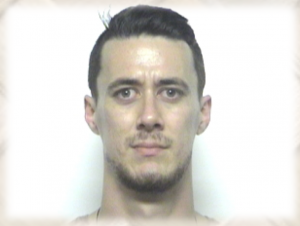 Paratene (Hirini) Tane‘s thesis topic discusses “Whakapapakainga: a template for the cross-generational development of marae-communities.” Hirini’s supervisors include Professors Paul Tapsell, Merata Kawharu and Poia Rewi.
Paratene (Hirini) Tane‘s thesis topic discusses “Whakapapakainga: a template for the cross-generational development of marae-communities.” Hirini’s supervisors include Professors Paul Tapsell, Merata Kawharu and Poia Rewi.
His abstract explains: Through case study research located in Northland, New Zealand, this thesis investigates the future of papakāinga (kin-community settlements) and their marae (ancestral centres of tribal identity). Māori kin-communities have transformed in response to crisis and opportunity over generations. Due to historical impacts of Māori land alienation, individualisation, and Māori urbanisation, the binding fabric of papakāinga – kinship and economy – has weakened.
‘Whakapapakāinga: a template for the cross-generational development of marae-communities’ investigates the concerns and hopes of the descendants of Oromahoe regarding the future of their papakāinga. It uses interviews with elders, a Māori land trust; a questionnaire with community descendants (local and non-local), archival research, and reflexive ethnography. The key finding of this research investigation is that papakāinga development should innovate within central needs – energy, housing and food – that restore economy around papakāinga and reactivate functional kinship links between community members.
This thesis is a study in the field of the target audience. The findings are to assist the Oromahoe Trust, the Oromahoe marae and its descendants (local and non-local) in shaping a strategic direction for their ancestral settlement, their papakāinga. The findings also provide an kin-insider approach to papakāinga development for housing development agencies, district and regional councils, funding agencies, banks, architecture firms, solar technology suppliers and Māori and non-Māori agricultural and horticultural enterprises that neighbour papakāinga. It is important not only to New Zealand’s 778 papakāinga, but also small indigenous communities elsewhere in the world facing similar crises of relevance to descendant diasporas, identity and development.
Call for Applications for PhD: Māori Literature and the News
There is an exciting opportunity for someone to do a PhD on “Māori Literature and the news”, as part of a Marsden project headed by Associate Professor Jacob Edmund (English and Linguistics, University of Otago).
See: PhD scholarship in Māori literature and the news for details.
Please circulate this on your own networks, or forward to anyone you think might be interested.
Te Tumu’s Postgraduate Graduands
Te Tumu would like to congratulate its four postgraduate students who will be graduating this December.
Roma-Kiritahi Simmons-Donaldson (Ngāti Porou, Taranaki, Ngāti Tūwharetoa) is graduating with a BA(Hons) in Māori Studies. Her dissertation, “Walking in two worlds – Te reo Māori in urban New Zealand” was supervised by Dr Karyn Paringatai.
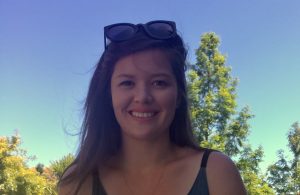 Abstract: The aim of this dissertation is to examine ways in which te reo Māori (the Māori language) can exist in urban New Zealand. Specifically, it will outline a history of te reo Māori, before looking at different ways in which language can be acquired and developed in an urban environment. It will then analyse ways in which te reo Māori has enabled Māori people to negotiate their place in urban New Zealand, in the absence of those environmental stimuli that traditionally inform and enhance a Māori identity and worldview. Central to this dissertation is the concept of intergenerational language transmission. As such, the experiences of my grandmother, mother, and myself will be presented throughout this dissertation to provide context, and to illustrate the interaction between urban migration, language, mechanisms of language acquisition and development, and identity, in a way that contextualises and enriches the literature.
Abstract: The aim of this dissertation is to examine ways in which te reo Māori (the Māori language) can exist in urban New Zealand. Specifically, it will outline a history of te reo Māori, before looking at different ways in which language can be acquired and developed in an urban environment. It will then analyse ways in which te reo Māori has enabled Māori people to negotiate their place in urban New Zealand, in the absence of those environmental stimuli that traditionally inform and enhance a Māori identity and worldview. Central to this dissertation is the concept of intergenerational language transmission. As such, the experiences of my grandmother, mother, and myself will be presented throughout this dissertation to provide context, and to illustrate the interaction between urban migration, language, mechanisms of language acquisition and development, and identity, in a way that contextualises and enriches the literature.
Future plans: “I have just accepted an offer to undertake PhD study at the University of Otago, which will look to fill a gap in the conversation surrounding bilingualism and intergenerational language transmission, and explore in depth the journey of language transmission between second language speaking parents and their first language speaking children. It is my hope that this thesis will help to increase our collective understanding of the intersection of these two stark pathways of language acquisition, and help whānau who are looking to do the same.” Dr Karyn Paringatai and Professor Poia Rewi will supervise Roma’s doctoral thesis.
Pia Cristóbal Kahn undertook the thesis pathway for her Master of Indigenous Studies degree. Her thesis, “Sacred Katuiran: Decolonial Sensibility in the Katipunan Papers / An ‘indigenist hermeneutic’ of 19th century Tagalog revolutionary texts” was supervised by Professor Poia Rewi.
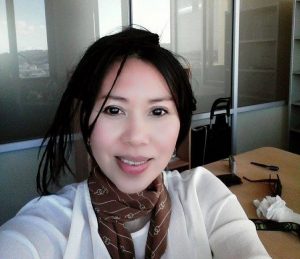 Abstract: Indigenous meanings and renderings tend to be forgotten and buried, and even erased, by non-indigenist interpretations and translations. This is a case study of an ‘indigenist hermeneutic’ approach to a re-translation of the “Kartilya” and other selected texts authored by members of the Katipunan, a 19th century revolutionary movement against Spanish colonial rule in the Philippines. The Tagalog word katuiran, which is often translated to ‘reason’, in support of a prevailing narrative in Philippine historiography that credits the European Enlightenment for primary Katipunan ideas, becomes central to the research as intertextual analyses unearth a variety of its forgotten meanings and usages, and concomitant mistranslations. A comparative conceptual analysis of katuiran and the Māori word tikanga opens up a viable hypothesis for an expanded indigenous meaning of katuiran, that necessitates the re-translation of many passages and other principle ideas of the Katipunan. This re-translation results in a re-narration that depicts an indigenous 19th- century ‘decolonial’ Tagalog movement that sought to delink from European constructs epistemically, ethically and politically; and thus, a re-narration that offers a challenge to a ‘European Enlightenment narrative’ for the Katipunan revolution.
Abstract: Indigenous meanings and renderings tend to be forgotten and buried, and even erased, by non-indigenist interpretations and translations. This is a case study of an ‘indigenist hermeneutic’ approach to a re-translation of the “Kartilya” and other selected texts authored by members of the Katipunan, a 19th century revolutionary movement against Spanish colonial rule in the Philippines. The Tagalog word katuiran, which is often translated to ‘reason’, in support of a prevailing narrative in Philippine historiography that credits the European Enlightenment for primary Katipunan ideas, becomes central to the research as intertextual analyses unearth a variety of its forgotten meanings and usages, and concomitant mistranslations. A comparative conceptual analysis of katuiran and the Māori word tikanga opens up a viable hypothesis for an expanded indigenous meaning of katuiran, that necessitates the re-translation of many passages and other principle ideas of the Katipunan. This re-translation results in a re-narration that depicts an indigenous 19th- century ‘decolonial’ Tagalog movement that sought to delink from European constructs epistemically, ethically and politically; and thus, a re-narration that offers a challenge to a ‘European Enlightenment narrative’ for the Katipunan revolution.
Future plans: “I plan to continue my research on the doctoral level, with a focus on Tagalog cultural conceptualisations, and drawing from the fields of indigenous studies, cultural linguistics, memory studies and oral history.”
Te Tumu also has two staff members who are graduating with their PhDs.
Dr Tangiwai Rewi (Waikato, Ngaati Tiipaa, Ngaati Amaru, Ngaati Tahinga) has completed a doctorate, “Examining traditional Maaori knowledge frameworks and intergenerational knowledge transmission. “Titiro, Whakarongo” – he huarahi ako noo ngaa raa o nehe.” Professor Michael Reilly was the primary supervisor, with Professor Helen May as co-supervisor until her retirement in Dec 2016, and Dr Michelle Schaaf as an Advisor.
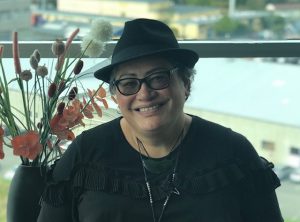 Ariaa: Abstract: This thesis investigates the way knowledge is transmitted inter-generationally, and the teaching and learning methods (or pedagogies) used to do this. The transmission referred to here relates to knowledge about practices associated with the Kiingitanga ‘kingship movement’ of which the Waikato iwi ‘tribe’ have long been the kaitiaki ‘guardians’. The pouwhirinaki ‘participants’ are from the Ngaati Tiipaa and Ngaati Amaru hapuu ‘sub tribes’ from the Port Waikato area; however, participants also came from other hapuu and iwi within the Waikato-Tainui rohe ‘region’.
Ariaa: Abstract: This thesis investigates the way knowledge is transmitted inter-generationally, and the teaching and learning methods (or pedagogies) used to do this. The transmission referred to here relates to knowledge about practices associated with the Kiingitanga ‘kingship movement’ of which the Waikato iwi ‘tribe’ have long been the kaitiaki ‘guardians’. The pouwhirinaki ‘participants’ are from the Ngaati Tiipaa and Ngaati Amaru hapuu ‘sub tribes’ from the Port Waikato area; however, participants also came from other hapuu and iwi within the Waikato-Tainui rohe ‘region’.
I set out to analyse whether there is any correlation between the traditional Maaori knowledge frameworks of old being utilised in the way we learn the roles associated with three domains on the marae ‘communal gathering place’ during three key Kiingitanga events. This thesis explores how learning was undertaken in ngaa whare waananga tawhito ‘traditional houses of learning’ before documenting my participants’ narratives about how they learned their roles. It concludes with my analysis of these findings and offers some recommendations, based on what the participants said, about cultural revitalisation looking forward.
Future Plans: After an enforced leave period from roles and responsibilities in order to complete the thesis, Tangiwai is now relishing the challenge of resuming these expectations. From January 2019 she takes on the 0.5 Academic Dean Maaori position in the Division of Humanities. This is in addition to being the new Co-chair of Poutama Maaori, the Maaori academic staff network across the Otago University campuses which she recently took up in September 2018.
On the research front she is busy implementing one of the translational priorities of her PhD research, Tuupuna Times, which encourages whaanau to record the life stories /narratives of their ruuruhi (elderly women) and koroheke (elderly men). While she has continued to teach her Maaori education papers of MAOR 213, 313 and 413, she also expects to conduct comparative research with two other New Zealand iwi and two other indigenous tribes from Northern America related to her PhD study during her pending Research and Study Leave forecast for the back end of 2020 / start of 2021.
Dr Erica Newman is also graduating, having completed a PhD on Adoption in Fiji. Associate Professors Jenny Bryant-Tokalau and Jacqui Leckie supervised Erica’s thesis, assisted by the Advisory Committee of Professor Michael Reilly and Dr Michaelle Schaaf.
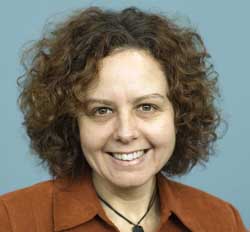 Abstract: The arrival of Europeans in Fiji, from the late 1700s, impacted the established social structures of the indigenous communities, removing what were considered inappropriate social behaviours and introducing concepts and values which altered the societal relationships and status of iTaukei (indigenous Fijians). This included the introduction of colonialist terms and practices of ‘orphan’ and ‘adoption’. Scholars such as Vern Carroll, Ivan Brady and Ward Goodenough have questioned whether the use of these terms were appropriate when referring to the traditional practices of child circulation amongst kin within Oceania. Yet the iTaukei population came to use these terms, practices and their meanings, although not entirely in the same context as the European.
Abstract: The arrival of Europeans in Fiji, from the late 1700s, impacted the established social structures of the indigenous communities, removing what were considered inappropriate social behaviours and introducing concepts and values which altered the societal relationships and status of iTaukei (indigenous Fijians). This included the introduction of colonialist terms and practices of ‘orphan’ and ‘adoption’. Scholars such as Vern Carroll, Ivan Brady and Ward Goodenough have questioned whether the use of these terms were appropriate when referring to the traditional practices of child circulation amongst kin within Oceania. Yet the iTaukei population came to use these terms, practices and their meanings, although not entirely in the same context as the European.
This thesis investigates the colonialist perspective of Fiji’s traditional child circulation and introduced European practices of child care, guardianship, adoption and orphanage institutions. The research covers a number of key topics that are relevant for this thesis. It begins with an understanding of Fijian kinship structure prior to, and just after, the arrival of the first Europeans. The research then explores colonial interventions of guardianship (the first being a consequence of the introduced Indian Indentured Labour Scheme). Missionaries brought with them the institution of orphanages and a history of these are explored (today orphanages are now known as Children’s Homes). The Child Welfare Department in Fiji is responsible for the placement of vulnerable children into safe homes. As they are an important part of guardianship and adoption today this thesis provides a history of how this scheme developed into a government department. In 1945 Fiji enacted the Adoption of Infants Act as a formal process for all children of Fiji, regardless of ethnicity, and this research follows the path of creation. Although the Adoption of Infants Act caters for all ethnicities of Fiji, ‘informal adoption’ or child circulation continued and continues to be practised by iTaukei. During the colonial period the colonial government accepted this customary practice as an acceptable form of child care.
This thesis provides a history of adoption and guardianship practices in Fiji during the colonial period of 1874 to 1970.
Future Plans: Erica will continue to work at Te Tumu, teaching and researching.
Hard Copies Submitted
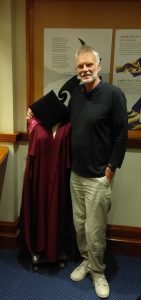 John Birnie submitted the “hard copies” of his PhD thesis today at the Graduate Research School.
John Birnie submitted the “hard copies” of his PhD thesis today at the Graduate Research School.
John has been a fixture at Te Tumu, graduating with his MIndS in 2012. Te reo Māori is one of John’s passions. He was a former high school teacher of te reo, and completed higher level reo classes at Te Tumu. His PhD, “Exploring learner-centredness for adults learning te reo Māori: easing the path to language acquisition” combines his interests in education and Māori-language learning.
John was supervised by Prof. Poia Rewi and Assoc Prof. Lachy Paterson, and by Dr Matiu Rātima in the early stages of his study. Submitting the hard bound copies is the final act in the PhD journey – with the exception of his graduation in May. Koia kei a koe, e Hone!
Te Tumu Graduates in May 2017
Eight Te Tumu students graduated in the May ceremonies last weekend.
Hine Te Ariki Parata-Walker (Ngāti Porou, Ngāi Tahu) completed a Master of Indigenous Studies (MIndS). Her research topic, supervised by Professor Paul Tapsell, investigated procedures around hahunga (the exhumation of ancestral remains) in modern times. Select Parata-Walker abstract for further details.
Karurangi Salu (Tainui, Ngāpuhi, Samoan) gained a BA(Hons) with her research, entitled “Māku anō tōku nei whare e hanga”, looked at how haka and waiata are used in teaching at Te Whare Kura o Rākaumanga to pass on Tainui history, reo, tikanga and whakapapa. Dr Karyn Paringātai supervised. Select Salu abstract for further details.
Rieko Hayakawa also graduated with a PhD in Pacific Islands Studies. See here for details.
Congratulations also to our BA graduates.
Alice Anderson (Ngāi Tahu), BA in Indigenous Development/Te Kura Matanui.
Luaipouamalo Gafa (Samoan), BA in Pacific Islands Studies.
Maiora Puketapu-Dentice (Te Āti Awa, Tūhoe), BA in Māori Studies and History.
Tataioterangi Reedy (Ngāti Porou, Te Whānau a Apanui), BA in Indigenous Development/Te Kura Matanui.
Roma Simmons-Donaldson (Ngāti Porou, Taranaki, Tainui, Ngāti Tūwharetoa), BA in Māori Studies.
Rieko Hayakawa PhD in Pacific Islands Studies
A celebration was held in Te Tumu today for Rieko Hayakawa, who will be graduating tomorrow with her PhD. She started her doctorate in Media and Communications with Vijay Devadas and completed in Pacific Islands Studies where she was supervised by Jenny Bryant-Tokalau.
Her topic, ‘Possibility of Telecommunication Universal Service in the Pacific Islands’ with case Studies of Vanuatu, PEACESAT and USPNet came out of Rieko’s work in the Pacific Islands for the Sasakawa Peace Foundation for whom she worked for 26 years. One of her important projects for Sasakawa was the establishment of USPNet funded by Japan which enabled the University of the South Pacific to continue its successful distance teaching programme across the Pacific islands.
Rieko has published several articles, book chapters and reports on her thesis topic and most recently presented her findings to a parliamentary committee in Japan. She will be making another presentation in Japan later this month, this time on maritime boundaries (which will be the subject of her second PhD, to be undertaken in Japan).
Rieko is the wife of Professor Glenn Summerhayes of Archaeology and Anthropology, and mother of 14 year old Kyuka.
Thesis Abstract:
This thesis is about the meaning of telecommunication for the remote islands and rural areas in the Pacific Islands through the application and assessment of the ‘Capability Approach’, developed and used by Amartya Sen in his book of “Development as Freedom”. This research also makes a major contribution to the study of ICT4D (Information and Communications Technology for Development) and development of telecommunication of the Pacific Islands, through an examination of the historical background of communication, through case studies of Vanuatu, and PEACESAT with USPNet. In the Pacific thousands of small islands are scattered in the vast Ocean that occupies a third of surface of the Earth. Each small island is distant from the major economic centres and has a small population. Due to the economical scale of them and western colonization policy many islands did not have telecommunication service for a century after telecommunication was developed in the 19th century. In the 1970s during the cold war period, those islands had an opportunity to use free second-hand satellite from the United States and could provide higher education services and Fisheries management. In the 2000s deregulation and competition was introduced to the Pacific Islands Countries and finally Universal Service (which provided telecommunication service to the whole population) was achieved in some of PICs, such as Vanuatu.
What has been the impact of Universal Service in these countries? This study presents the result of my research in measuring the capability of ICT users, policymakers and providers, by undertaking interviews in Vanuatu using the ‘storytelling approach’. Results of this field research tell us about the dynamism of development relevance and people using ICT to magnify their Capability. Other case studies tell us that Capability does not belong to technology but to people and their will.
Te Tumu graduand in the news
Matani Schaaf is featured in the Otago Daily Times [click here] on his PhD journey. It’s a lovely story on both Matani and his son Marckis who graduate today.
Rangahau Roundup
Semester 2 has been busy on the research front for Te Tumu staff and postgrads.
Te Tumu is still progressing with Te Kōparapara, a book on Māori culture, history and contemporary society, which is designed as a textbook for MAOR102 as well as for a general audience. Prof Michael Reilly is the main driver of this project, and has been ably assisted by Dr Gianna Leoni. This book, with an array of essays mainly written by Te Tumu staff, is under contract with Auckland University Press and should appear sometime in 2017.
Faculty News
Associate Prof Jenny Bryant-Tokalau has been having a busy Research and Study Leave. She has given two presentations in the USA in the last semester: ‘Food security and other risks in a time of climate change: traditional and contemporary forms of resilience’, to the Department of Anthropology, and ‘Small Island Pacific States: Dealing with Climate Change’ to the Department of Geology at Wheaton College in Massachusetts. In December she presented ‘Working in Context: The Commercial Potential of Customary Pacific Land’ at the Aotearoa New Zealand International Development Studies Network Ninth Biennial Conference ‘Pacific Currents, Global Tides’ Wellington, and ‘Dealing with disasters and social change’ to the Asia Pacific Biocultural Health ‘Big Ideas’ Workshop, in Dunedin, December.
Jenny has also had one chapter in an edited collection appear during this period: ‘Community responses to floods in Fiji: lessons learned’ In Calabrese, John (ed.) Humanitarian Assistance and Disaster Response: Rising to the Challenge. MAP Series, Middle East Institute, Washington. August (2016) issue. Click here to access it. She also has two book reviews published in New Zealand and Pacific Studies November, 2016; and Journal of the Polynesian Society 125 (1), 2016.
Jenny is planning to return to the Solomon Islands to carry out in-depth interviews on small and medium businesses on Kastom land, as well as to finalise book edits for Palgrave MacMillan Anthropology of Disaster Series: What the Pacific Islands can teach New Zealand about Climate Change.
As previous posted, Prof Paul Tapsell spoke at the Indigenous Plenary at the WAC-8 Conference in September. Paul and Associate Prof Merata Kawharu are also part of the large three-year Mauri-Whenua-Ora project within the National Science Challenge Land and Water: Toitū te Whenua, Toiora te Wai. This project is the only fully Māori-led and Māori-integrated research programmes of all NSCs nationally, and is looking at Maori land and water based innovation including: (1) micro economy development “Pa to Plate”, (2) Shared iwi innovation for Taitokerau as a model for other iwi and (3) a regional (Te Hiku) study looking at Maori land suitable use and value chains. Merata also has a forthcoming publication, “Indigenous Entrepreneurship: Cultural Coding and the Transformation of Ngāti Whātua in New Zealand” in the Journal of the Polynesian Society, 125, 4 (2016): 385-408.
Associate Prof Lachy Paterson gave a presentation entitled ‘U.S. Slave “Humor” in New Zealand Newspapers’ at the 109th Annual Meeting of the Pacific Coast Branch of the American Historical Association at Waikoloa, Hawai’i. He is currently writing up this paper, which looked at how imported racist discourses permeated New Zealand’s English-language newspapers. Lachy returned to his ongoing obsession with Māori-language newspapers, with “The New Zealand Government’s Niupepa and their Demise” published in the New Zealand Journal of History, 50, 2 (2016): 44-67.
Together with Associate Prof Angela Wanhalla (Dept of History and Art History), he has also sent off their manuscript “He Reo Wahine: Māori Women’s Voices from the Nineteenth Century” to Auckland University Press, and it should appear sometime in 2017.
Over summer Prof Michael Reilly hopes to write a paper concerning the research relationship between William Wyatt Gill of the London Missionary Society, and Mamae of Ngāti Vara, a church minister, on Mangaia during the 19th century. In the longer run, he wants to begin writing chapters for an introduction to Māori tribal history, drawing from the draft text used as a ‘course reader’ in MAOR 207 Ngā Kōrero Nehe – Tribal Histories. Michael is passionate about this project but acknowledges that it may take several years to finish. He has also completed the final editorial corrections for a paper to be published this December, “Narrative Features and Cultural Motifs in a Cautionary Tradition from Mangaia (Cook Islands)”, in the Journal of the Polynesian Society 125, 4 (2016): 357-384.
Dr Jim Williams has a forthcoming article in the Journal of the Polynesian Society, entitled “Seafood Gardens”. Jim has a busy summer planned, fininishing off an essay for Ethnohistory, entitled “Layers of History” explaining how certain activities are repeated at powerful places, giving rise to notions of circularity of time, but layered, like whakapapa; he will also be giving a presentation in January at the American Historical Association conference in Denver. One of Jim’s students, Katrina Bryant, has just completed her Master of Physiotherapy.
In October newly graduated Dr Gianna Leoni gained a new position based in Te Tumu, that of a Ngā Pae o te Māramatanga postdoctoral fellow, with the research project “Te Ōhanga o te Pīpīwharauroa – Expressing our Economic Aspirations”. Click here for more details.
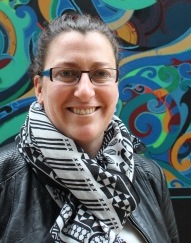 In June, Megan Pōtiki presented on her doctoral research on language loss at Ōtākou, at He Rau Tumu Kōrero IX at Te Rau Aroha Marae in Bluff. This event was run by Te Pouhere Kōrero, the national Māori historians organisation. Megan has also published two journal articles, “The Otago Peninsula: A unique identity” in Shima, 10, 1 (2016): 67-84 [Potiki-Shima-v10n1-3]; and ‘Te Haka Nā Ngā Herehere’ in Te Pouhere Kōrero 8 (2016): 6 –25, and is currently working on another article, “Māori song composition and reclamation of traditional tribal borders” based on a mōteatea she composed for the Te Tumu Kapa Haka group.
In June, Megan Pōtiki presented on her doctoral research on language loss at Ōtākou, at He Rau Tumu Kōrero IX at Te Rau Aroha Marae in Bluff. This event was run by Te Pouhere Kōrero, the national Māori historians organisation. Megan has also published two journal articles, “The Otago Peninsula: A unique identity” in Shima, 10, 1 (2016): 67-84 [Potiki-Shima-v10n1-3]; and ‘Te Haka Nā Ngā Herehere’ in Te Pouhere Kōrero 8 (2016): 6 –25, and is currently working on another article, “Māori song composition and reclamation of traditional tribal borders” based on a mōteatea she composed for the Te Tumu Kapa Haka group.
As part of Māori language week this year Tangiwai Rewi was asked to give a Library research floor talk on Wednesday 13 July on the Ngāruawāhia Turangawaewae regatta, which comes out of her doctoral research and an article last year in the Journal of the Polynesian Society. A display themed around the article was shown in the Hocken Collections for seven weeks as part of Māori language Week. Click here for more details and pictures.
Tangiwai has participated in the Ahi Pepe Resource launch 27 October and Wānanga 26-28 October. She was a collaborator in this project which created an immersion te reo Māori Moths resource depicting the 600+ species endemic to the South Island. Twelve schools were invited to the Wānanga, to participate, learn how to trap, kill and present moths for identification and preservation. Also launched that night were the bilingual and total immersion resource covering the four areas of the South Island.
Tangiwai also attended the SCANZ (Science Communicators Association NZ) conference on 14 November as part of the panel who discussed the resource and preservation of moths.
Tangiwai went north to attend the Te Awamārahi poukai on 24 November. (Poukai are ceremonial gatherings held on Kīngitanga marae.) This was an opportunity to take the photo display back to her marae especially as some of people featured in the photos come from that marae. The photo boards were put on display along with other harakeke resources found along the riverbanks. Needless to say, Tangiwai also vigorously promoted Te Tumu and the University of Otago to all the people who came to view the display.
Postgraduate News
Congratulations to Matangi Schaaf who graduates in December with a PhD; and also to Nikki Walden (Taranaki, Te Āti Awa) and Nurul Sultan with Master of Indigenous Studies degrees. Click here for more details.
Two of our PhD students are submitting in December: John Birnie and Taomi Qiliho-Tapu, and Tāwini White (Ngāi Tahu, Te Rarawa) is making the final amendments to her MA thesis. Rieko Hayakawa‘s PhD thesis ‘Possibility of Telecommunication Universal Service in the Pacific Islands; Case studies of Vanuatu, PEACESAT and USPNet’ has just passed examination. We look forward to these students graduating in the near future.
We have a new PhD student who has just started, Raaniera Te Whata (Ngāpuhi, Ngāti Porou, te Whānau a Apanui), researching communities-based Māori land development in the Bay of Islands. Raaniera comes into doctoral studies after completing an LLB in Auckland and a Master of Indigenous Studies in Te Tumu.
In August Erica Newman who is undertaking PhD research on Fijian Orphanages (1874-1970) presented at the Anthropology and Archaeology Postgraduate Symposium held here in Dunedin.
Matiu Payne (Ngāi Tahu, Ngāti Mutunga), who is researching the impact of government agencies on tikanga whāngai for his doctoral studies, has just been to the Australia New Zealand Law and History Society conference at Curtin University in Perth presenting on his PhD research.
Kelli Te Maihāroa (Waitaha) who is researching Māori peace traditions and their relevance to whānau today, has co-edited an edited collection: H. Devere, K. Te Maihāroa, & J.P. Synott (eds.) Peacebuilding and the Rights of Indigenous Peoples: Experiences and Strategies for the 21st Century, (Springer: Cham, Switzerland, 2016), which includes two co-written and one sole-authored articles by Kelli. She also has an article forthcoming, “Whanaungatanga: Relationships in a One Day Te Reo Māori School of Excellence” in Theobald, M. (Ed.) Friendships in Multilingual Settings (Sociological Studies of Children and Youth, Vol 21 (2016)). Emerald. Kelli, who is a lecturer in the College of Education, also presented at the Teacher Education Forum of Aotearoa New Zealand, in June/July in Dunedin, and at International Indigenous Research Conference in November in Auckland.


